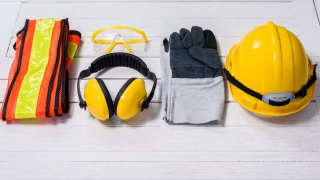
Embracing Sustainability with BESS: A Guide for the Future of Built Environments
In an era where environmental sustainability is not just a choice but a necessity, the Built Environment Sustainability Scorecard (BESS) emerges as a beacon of guidance for architects, builders, and developers alike. The BESS tool, designed with the Australian built environment in mind, offers a comprehensive framework to assess and enhance the sustainability of building projects across various categories including Management, Energy, Water, Indoor Environment Quality (IEQ), Transport, Waste, Urban Ecology, and Innovation.
The Essence of BESS
At its core, BESS encourages early planning and integration of sustainable practices in building projects. Whether it’s a new construction or a renovation, BESS provides a structured approach to evaluate environmental impacts and implement strategies that lead to more efficient, resilient, and sustainable outcomes.
A Closer Look at Sustainability Categories
- Energy Efficiency: BESS stresses the significance of energy efficiency, pushing for the adoption of renewable energy sources and technologies that reduce electricity consumption and greenhouse gas emissions.
- Water Conservation: Water management strategies are essential, advocating for systems that minimize water use and promote recycling and harvesting.
- Indoor Environment Quality (IEQ): Ensuring healthy indoor environments is a priority, with a focus on ventilation, lighting, and materials that enhance comfort and well-being.
- Transport: Encouraging sustainable transport options reflects BESS’s commitment to reducing the carbon footprint associated with building usage.
- Waste Management: The tool emphasizes the importance of reducing, reusing, and recycling construction and operational waste, aiming for minimal environmental impact.
- Urban Ecology: BESS acknowledges the role of buildings in promoting biodiversity and ecological health, urging the incorporation of green spaces and habitat-friendly designs.
- Innovation: Recognizing that sustainability is an evolving field, BESS leaves room for innovative approaches and solutions that push the boundaries of traditional building practices.
Why BESS Matters
The urgency of addressing climate change and environmental degradation cannot be overstated. Buildings play a significant role in this equation, accounting for a substantial portion of energy consumption and carbon emissions globally. By adopting the BESS framework, the construction industry can take a proactive stance in mitigating environmental impacts, contributing to a more sustainable and resilient future.
Moving Forward with BESS
The adoption of BESS represents a shift towards holistic environmental stewardship in the built environment. It’s not just about compliance; it’s about embracing a vision where every building project is an opportunity to contribute positively to the planet. The detailed notes provided on the BESS website serve as a valuable resource for professionals seeking to integrate these principles into their work, offering clear guidelines and strategies to achieve sustainability goals.
Conclusion
As we face the challenges of the 21st century, tools like BESS are essential in guiding our efforts to create sustainable, livable, and resilient communities. It encourages a collaborative approach to sustainability, where architects, builders, developers, and the community work together towards a common goal. Embracing the principles outlined by BESS is not just a step in the right direction; it’s a leap towards securing a better, more sustainable future for all.

🚀 Ready to Elevate Your Building Career?
If you’ve been inspired by the possibilities in the building and construction industry, it’s time to take action. The Certificate IV in Building and Construction offers the expertise and knowledge you need to turn your aspirations into reality. Whether you’re aiming to become a skilled builder, an efficient project manager, or a visionary leader in the residential building sector, this course is your stepping stone.
Join a community of professionals who have transformed their careers with this nationally recognised qualification. Don’t just build structures, build a future you can be proud of. Discover more about how you can start your journey with the Certificate IV in Building and Construction.






